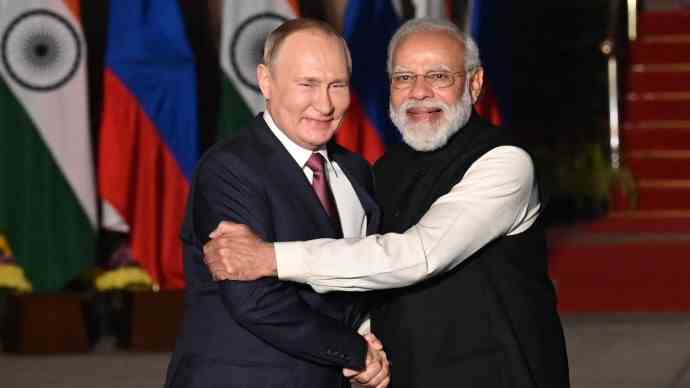It is a double summit that is to take place these days between India’s Prime Minister Narendra Modi and China’s President Xi Jingping. Because before the meeting of the so-called Shanghai Cooperation Organization (SCO) on September 15 and 16 in Samarkand, Uzbekistan, the discord between the two most populous countries in the world in the icy heights of the Himalayas had to be settled first.
In the past two years, the world’s two largest armies had deployed increasing numbers of troops to a remote area in Ladakh, killing several soldiers on both sides. Last Friday, the Indian Ministry of Foreign Affairs announced that Indian and Chinese soldiers would withdraw from the disputed area by September 12. Implementation was reported on Tuesday and also confirmed by the Chinese side, after several rounds of talks between high-ranking military officials.
The withdrawal was evidently part of Delhi’s and Beijing’s efforts to avoid an escalation – and to make talks possible again, including at the highest level. Chinese state media then reported on Tuesday that Xi Jingping had arrived in Kazakhstan for his first overseas visit since the outbreak of the pandemic. So Modi and Xi are slowly moving towards each other.
India in new role due to Ukraine war and pandemic
Narendra Modi finds herself in a new role as a result of the war in Ukraine and the changed world order following the pandemic. India is dependent on Russia for the strength of its own army. About 60 percent of Indian armaments come from Russia, some of which date back to Soviet times. India also gets a lot of fertilizer from Russia and supplies food. And since the energy prices for fuel from Russia have fallen, Delhi has stocked up cheaply there. “Trade turnover reached $11.5 billion in the first half of 2022, up almost 120 percent year-on-year,” the Kremlin told the news agency Reuters.
In a short space of time, India has become Moscow’s second largest oil customer, after China. Both countries are thus helping to cushion the effects of Western sanctions on Russia. And neither country has publicly criticized Moscow’s actions in Ukraine, despite outcry in the West.
The news agency Asian News International (ANI) reported Wednesday that Modi will definitely hold bilateral talks with Vladimir Putin on the sidelines of the SCO summit in Samarkand. “Economic cooperation within the SCO is an important issue,” Manish Prabhat, the Indian Ambassador to Uzbekistan, told ANI. “We are discussing the mutual ties that will boost trade, investment and other forms of exchange between India and the Central Asian countries.”
A gigantic market that can do well without Europe and the USA
The dispute between India and China, on the other hand, started in the Himalayas, but also has an economic background. For a long time, people in Delhi looked with envy and skepticism at the booming economy in China and at the same time had to realize that the Indian smartphone market, for example, was firmly in Chinese hands. For two years now, Delhi has been trying a so-called decoupling process to make itself less dependent on the Chinese economy – but so far imports have continued to rise.
While Moscow and Beijing have isolated themselves internationally for various reasons in recent months, Delhi can act from a relatively strong position. Just last week, the International Monetary Fund reported that the Indian economy was doing so well that the country had overtaken the former colonial power Great Britain and ranked fifth among the world’s largest economic powerhouses, even if that doesn’t matter to a large extent given the huge population. China is second, Germany fourth.
So when economic power number two and number five meet in Samarkand, it will not only be the first meeting between the two heads of state since the “Brics” conference in Brasilia in 2019. It will also be a moment that could decide how much India and China will depend on the West in the future. A total of around 2.8 billion people live in both countries, a gigantic market that can do well without Europe and the USA.

